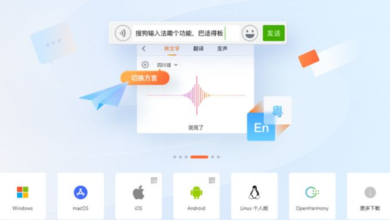From Sentiment to Strategy: The Rise of Media Intelligence Services

In the hyperconnected world, the brand reputation can change within hours, or even minutes. It could be a viral tweet, a breaking news headline or a product review on YouTube, consumers are continuously influencing brand perception through the discourse in the public. In order to remain competitive, contemporary organizations are moving beyond reactive communication into strategic foresight and at the forefront of this change is the emergence of Media Intelligence Services.
What Is Media Intelligence?
Media Intelligence can be defined as the act of gathering, analysing and interpreting news media, blogs, forums and social media information to make strategic business decisions. Media Intelligence goes beyond the traditional media monitoring that monitors the mention and headlines. It employs artificial intelligence, natural language processing, and data analytics to identify sentiment trends, predict crises, compare competitors, and inform more intelligent marketing, PR, and product strategies.
The Evolution: From Media Monitoring to Media Intelligence
In the past, media monitoring services were mostly manual or keyword-based and only able to monitor mentions in a small range of news outlets. These solutions were useful but did not provide any meaningful insight or context. They depicted the things that were being said- not the reasons why they were important or the next step to be taken.
The emerging generation of Media Intelligence solutions alters that dynamic completely. With the combination of high-level AI and real-time data analysis, brands do not only listen, but interpret, predict, and act.
A typical Media Intelligence platform nowadays consists of:
- Sentiment analysis in real time
- Trend and anomaly detection
- Influencer and content impact measurement
- Media stories geo-location mapping
- Competitive benchmarking
- CRM and marketing integration
This shift in monitoring to intelligence enables brands to act with clarity, agility and confidence.
Why Media Intelligence Services Are Crucial in 2025
The digital media explosion has created the most vulnerable brand perception ever witnessed. A brand story is being rewritten with each consumer post, journalist take, or influencer video. It is no longer possible to rely on intuition or quarterly analysis.
This is why Media Intelligence Services are no longer an option in the contemporary business environment:
1. Prevention & Mitigation of Crisis
Media Intelligence tools provide brands with an advantage in PR crisis management by detecting negative sentiment or abnormal increases in the volume of discussion. It can be a product recall, a scandal in the industry, or an unhappy influencer, but early detection can help avoid reputational losses.
2. More Intelligent Marketing Strategies
Media Intelligence does not merely follow discussions, it puts them into perspective. Marketers can learn what messages are most effective, when people are most active and how emotions change over the course of campaigns. This information is used in content creation, paid media and channel strategy.
3. Competitor Benchmarking
What is your share of voice as compared to your major competitors? Which channels are they taking over? What are the pain points that their customers are complaining about that you can solve? Media Intelligence solutions can assist brands in identifying the gaps and exploiting them quicker than ever before.
4. Large-scale Social Media Monitoring
Although news media is still powerful, social media monitoring has turned out to be a core of any intelligence strategy. The consumer has become used to brands being able to engage, respond and evolve in real-time. Media Intelligence platforms enable you to monitor huge amounts of content on Twitter, LinkedIn, Reddit, TikTok, and others to get the valuable insights without the noise.
5. Informed Executive Decision-Making
C-level executives do not need to wait until they get marketing reports or press summaries. Media Intelligence-driven dashboards provide real-time insight into consumer perception, market dynamics, and new trends–helping make decisions quickly and more effectively.
Key Features to Look for in a Media Intelligence Solution
With the increasing number of vendors in the market, one should select the appropriate Media Intelligence platform that suits the business requirements. Seek out:
- Integration of multi-channel (news, blogs, forums, social media)
- Department/role specific dashboards
- Sentiment and trend analysis using AI
- Multilingual and worldwide monitoring
- Automation and real-time alerting
- Compatibility with existing CRM, PR, or marketing tech stacks
It is necessary to be scalable and customizable. The tool must grow with you whether you are a small SaaS startup or a multinational enterprise.
Real-World Impact: From Data to Direction
Take an example of a brand that is introducing a new green product. Conventional monitoring may present positive news coverage, but Media Intelligence takes it a step further: it helps to understand that Gen Z consumers on TikTok are not convinced about the sustainability of the product. This understanding makes the brand collaborate with credible sustainability influencers and update messaging to be transparent.
That change, which is solely Media Intelligence driven, turns possible backlash into brand advocacy.
Conclusion: The Intelligence Advantage
In the AI-powered digital economy, we are entering, the brands that survive will not be the shouters, they will be the smartest. Media Intelligence Services are no longer optional services, they are the strategic core of contemporary marketing, PR and brand management.
In a world where the mood of the people is not only volatile, but also influential, it is your capability to listen well, learn fast, and act smart that makes the difference.
Raw data to real impact- Media Intelligence is the way to go.



